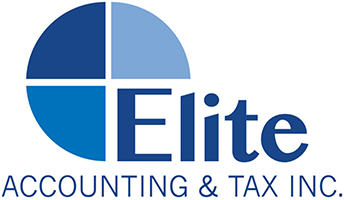In today’s competitive business landscape, small business owners face various challenges, including navigating complex tax regulations. One strategic decision that can significantly impact a business’s financial health is choosing the right business structure, such as incorporation. In this blog post, we’ll delve into the tax advantages of incorporating your business and how this decision can lead to substantial cost savings over time.
Why Incorporate Your Business?
Incorporating your business offers several compelling benefits, including limited liability protection, enhanced credibility, and easier access to capital. However, one of the most significant advantages lies in the realm of taxation.
Tax Advantages of Business Incorporation
When you incorporate your business, you unlock a range of tax benefits that can positively impact your bottom line. Here are some key advantages:
- Lower Tax Rates: Corporations often enjoy lower tax rates compared to individual tax brackets, allowing for potential tax savings.
- Deductible Business Expenses: Incorporated businesses can deduct various expenses, such as salaries, benefits, operating costs, and business-related investments, reducing taxable income.
- Tax Deferral and Planning: Incorporation offers opportunities for tax deferral and strategic planning, allowing businesses to time income recognition and deductions for optimal tax outcomes.
Example:
Consider a small business that incorporates and strategically structures its operations and expenses. By taking advantage of deductible expenses and timing income recognition, the business can significantly reduce its tax burden, leading to increased profitability.
Pass-Through Entities vs. C-Corporations:
It’s essential to understand the tax implications of different business structures. Pass-through entities like sole proprietorships, partnerships, and LLCs pass income and deductions through to owners’ individual tax returns. On the other hand, C-corporations are taxed separately from their owners, potentially facing double taxation but also offering unique tax benefits.
State Tax Considerations:
In addition to federal taxes, businesses must consider state tax implications. Choosing the right state for incorporation can impact tax liabilities, with some states offering favorable tax incentives and credits for corporations.
Tax Planning Strategies for Incorporated Businesses:
To maximize tax advantages, incorporated businesses can employ various strategies:
- Employee Compensation Structuring: Optimizing salary, benefits, and incentive structures to minimize tax liabilities.
- Strategic Deductions: Leveraging deductions for business expenses, investments, and charitable contributions.
- Utilizing Tax Credits: Taking advantage of available tax credits and incentives offered to corporations at the federal and state levels.
Expert Tip:
Consulting with tax professionals, such as Elite Accounting & Tax, is crucial for developing personalized tax planning strategies tailored to your business’s unique needs and goals.
Want to Incorporate Your Business? Elite Accounting & Tax is Here to Help!
Incorporating your business isn’t just about legal structure—it’s a strategic financial decision with significant tax advantages. By understanding and leveraging these benefits, businesses can save money, enhance financial stability, and position themselves for long-term success.
Book a consultation with Elite Accounting & Tax today for expert assistance in business incorporation, tax planning, and maximizing your tax advantages. Your financial future starts here.


